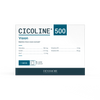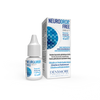Pregnancy food tips and essential nutrients

Pregnancy requires particular vigilance regarding the intake of certain nutrients for the proper development of the baby during life in utero, but also for the well-being and health of the future mother . In this sense, from the start of pregnancy, good habits must be adopted. When possible, it is even desirable to make certain changes as soon as you want to conceive a child. Indeed, our modern diet unfortunately creates a risk of deficiency in nutrients that are essential for “making” a healthy baby. Why do some prove to be of crucial importance? When to consider supplementation? Here are some keys to answering these questions and offering dietary advice to provide nutrients essential to the smooth running of the pregnancy.
Fight against deficiencies
Significantly increased basic needs
Pregnancy is a period when nutritional needs are greatly increased . From the first trimester of pregnancy, the body stores the nutrients necessary for the baby's development. If these reserves are insufficient, they are quickly depleted. However, it appears that many women are deficient even before becoming pregnant.
These increased needs concern macronutrients (proteins, lipids, carbohydrates) but also vitamins (in particular vitamins A, B1, B6, B9, B12, C and D) and minerals (especially iron, iodine and calcium) ( 1) .
Folic acid: essential for preventing the risk of malformations
Folic acid is the best known supplement recommended for women during the preconception period. Also called vitamin B9, it is a B group vitamin essential for the growth and development of the baby in utero. Numerous studies have shown that folic acid helps reduce, in particular, the risk of neural tube defects during pregnancy. Other problems can also be prevented thanks to a sufficient intake of folic acid: congenital heart disease (2) , reduced risk of premature birth (3) and anemia in the mother (4) .
Even though folic acid is found in food, the sources are not sufficient to ensure the intake required to protect against malformations linked to a deficiency. The recommended dose is currently 400 μg/day (5) .
If you want to become pregnant, it is strongly recommended to take this supplement at least three months before becoming pregnant .
Iron: almost always insufficient during pregnancy
Iron deficiency is almost systematic in pregnant women (6) . We speak of iron deficiency anemia, that is to say a lack of iron. During pregnancy, blood volume increases, as does oxygen requirements. However, the latter attaches to iron in hemoglobin to be transported.
Iron has easier absorption with vitamin C. It is therefore interesting to consume citrus fruits which are full of it.
Perhaps we should remember that iron deficiency leads to fatigue and irritability. However, pregnancy represents a period where these 2 manifestations can already be expressed for various reasons.
Omega-3: pillars of cellular structuring
Omega-3s, which you have certainly heard a lot about lately, are polyunsaturated fatty acids described as “good fats”. Omega-3s are special fatty acids, since they cannot be synthesized by the human body . They must therefore come from food. But our current basic diet is too often devoid of it.
We generally consume much more and much too much so-called saturated fatty acids or even trans fatty acids that have undergone transformations in the food industry. Alpha-linolenic acid is the leader in this category of fatty acids, but of course there are others like EPA and DHA.
For the baby
Omega-3s have a protective antioxidant effect and contribute in particular to the good structuring of cell membranes. It is therefore logical that you can imagine to what extent they can be important in embryogenesis, that is to say this entire period of “construction” of the fetus and in particular that of its brain . In the last trimester of pregnancy, for example, brain volume increases 3 to 5 times.
Neurodevelopment is exponential from the 3rd week of pregnancy. The formation and implementation of the billions of neurons that make up the nervous system requires omega-3. In addition, these contribute to the transport of glucose to the brain.
The cells of the retina also require a very significant contribution of omega-3 to promote the proper development of the future infant's vision .
For the mother
A good intake of omega-3 for the mother would more likely prevent the famous “baby blues” after childbirth. A meta-analysis (7) , that is to say an analysis of studies which focused on the subject, showed in 2020 that omega-3 supplementation proves to be a promising additional contribution regarding the prevention of post-depression . -partum . Even if even more substantiated scientific studies must be carried out in this direction, omega-3s surely have a protective role . They would also influence the release of serotonin, a hormone linked to our mood.
Focus on good habits and clean up the bad ones!
Foods to favor
Vitamins and minerals
Thus, it is an opportunity to stock up on fruits and vegetables , rich in fiber, minerals and vitamins, in particular the famous vitamin B9 (folic acid). This is the case for watercress, salad, leeks and spinach. Walnuts, chickpeas, chestnuts and brewer's yeast flakes are also excellent sources.
Omega-3
The consumption of fish rich in omega-3 should be encouraged, favoring small fatty fish such as sardines, mackerel, herring. Indeed, large fish such as salmon or tuna have the bad reputation of being more loaded with heavy metals and pollutants which must be avoided during pregnancy. They should therefore be consumed in greater moderation (no more than twice a week). Rapeseed oil contains a good proportion of omega-3 but it must be chosen organic and first cold pressed so that it retains its nutritional qualities as much as possible. Nuts also contain a good content of omega-3.
Iron
Sources of iron of animal origin are found in red meat, black pudding, veal liver. Regarding plant sources , they will mainly be found in legumes (peas, lentils, etc.), algae, cocoa but also oilseeds.
A suitable food supplement
It is also possible to use a complete food supplement adapted to the situation of pregnancy and its specific needs for certain nutrients.
Vigilance must of course be given to a healthy and balanced diet as a priority, but supplementation needs may be indicated in certain women to avoid the risk of complications that certain deficiencies can cause.
Alcohol and tobacco should be avoided
Without any moralizing vocation, the message is clear: tobacco is the enemy of your baby's good development . This pregnancy must become the number 1 motivation for considering smoking cessation with support because obviously, it is not an easy process. The same goes for alcohol consumption which should be zero during this important period for the fetus.
Give up certain foods
The first trimester of pregnancy is crucial. It is during this period that vital organs are formed. At this stage millions of cell divisions take place constantly. Brain, digestive system, sensory organs, circulatory system... are all primordial constituents conditioned by the entire complex embryonic mechanism.
It is also during this period that particular attention must be paid to foods at risk of contamination by toxoplasmosis and listeriosis . These 2 infections, although rare, can be transmitted to the fetus and have serious consequences. Thus, eggs, meat or even fish in their raw form, unpasteurized dairy products are examples of foods to avoid due to their increased risk of contamination.
Stop eating unnecessary foods
Treating yourself is important during pregnancy and obviously the well-being of the mother-to-be is extremely important. It is customary to hear that pregnancy should not be a period of deprivation and that is right. Except that eating for 2 doesn't mean eating twice as much !
However, food satisfaction must be measured , especially if your indulgences are not recommended for your health and that of your baby. Soda, for example, is not the ideal drink due to its very high concentration of sugars and its lack of nutritional benefits because it only provides so-called empty calories.
Avoiding deficiencies without falling into overload
However, keep in mind that excesses can be harmful and the consumption of food supplements must be accompanied by a health professional to ensure that it is appropriate in your case.
In case of pregnancy, it is not recommended to take supplements without medical advice because they may interact with other medications or lead to an overdose of vitamins or trace elements.
The period of pregnancy is demanding in terms of nutritional intake. Focusing on a diet rich in essential nutrients is an excellent way to promote growth and good development. However, it is important to discuss this with the health professional following your pregnancy to assess your particular needs and, if necessary, to recommend a suitable food supplement.
Bibliographic references:
1. Move M. Eating a balanced diet before, during and after pregnancy [Internet]. Eat Move. [cited September 9, 2022]. Available here
2. Ionescu-Ittu R, Marelli AJ, Mackie AS, Pilote L. Prevalence of severe congenital heart disease after folic acid fortification of grain products: time trend analysis in Quebec, Canada. BMJ. May 12, 2009;338:b1673.
3. Bodnar LM, Himes KP, Venkataramanan R, Chen JY, Evans RW, Meyer JL, et al. Maternal serum folate species in early pregnancy and risk of preterm birth. Am J Clin Nutr. Oct 2010;92(4):864‑71.
4. Bentley S, Hermes A, Phillips D, Daoud YA, Hanna S. Comparative effectiveness of a prenatal medical food to prenatal vitamins on hemoglobin levels and adverse outcomes: a retrospective analysis. Clin Ther. Feb 2011;33(2):204‑10.
5. CT-16672_ACIDE_FOLIQUE_CCD_0,4mg_PIS_RI_Avis1_CT16672.pdf [Internet]. [cited September 9, 2022]. Available here
6. Benson CS, Shah A, Frize MC, Frize CJ. Iron deficiency anemia in pregnancy: A contemporary review. Obstet Med. June 2021;14(2):67‑76.
7. Mocking RJT, Steijn K, Roos C, Assies J, Bergink V, Ruhé HG, et al. Omega-3 Fatty Acid Supplementation for Perinatal Depression: A Meta-Analysis. J Clin Psychiatry. Sep 1, 2020;81(5):13281.
Share



